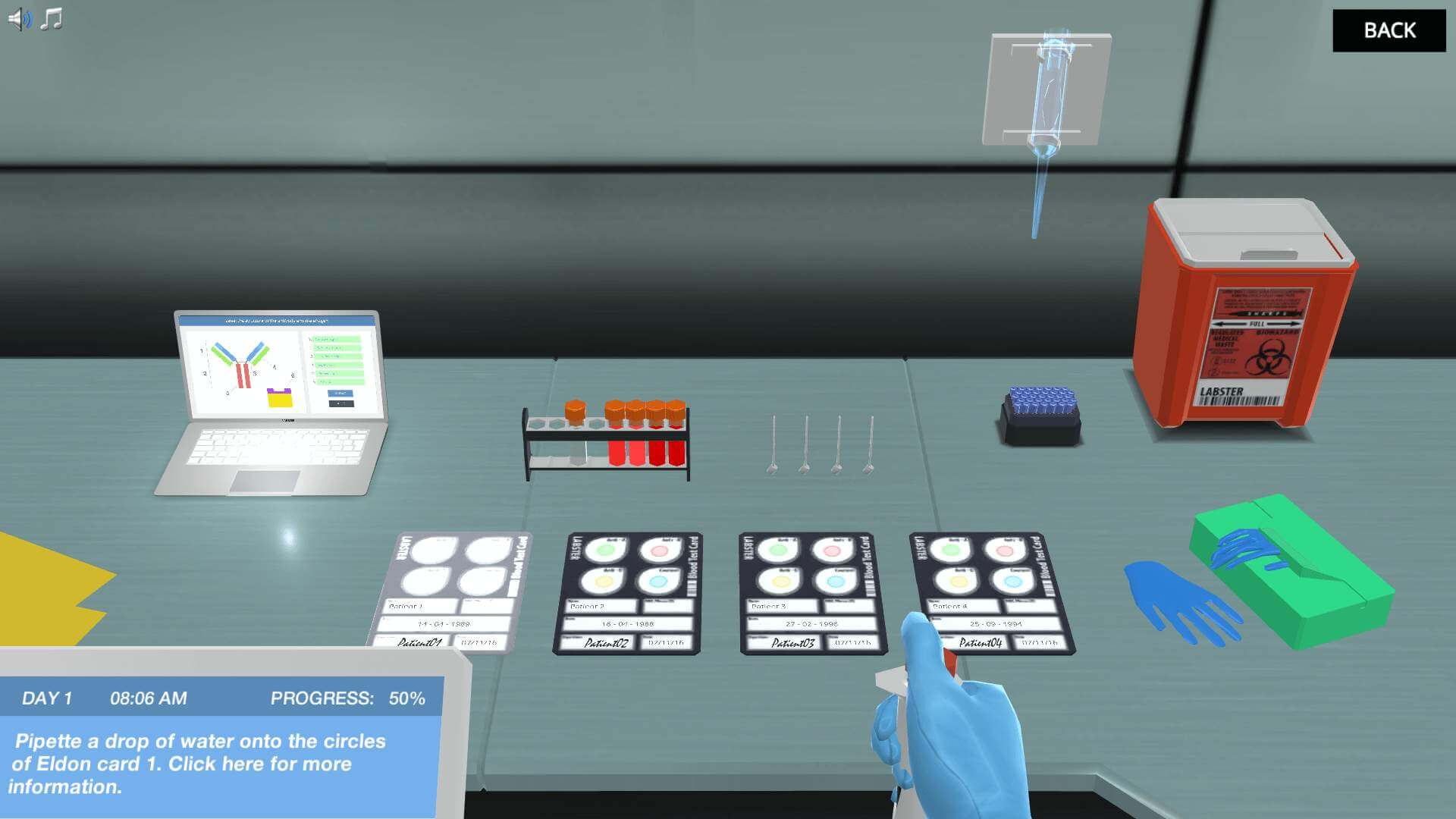Photo of Labster’s Antibodies Virtual Lab Simulation. Photo Credit: Photo taken from labster.com
The recent announcement of a virtual spring semester has begged the question of how WCU will continue to improve students’ virtual experience. For many science-based majors, the challenge of navigating lab requirements has added another layer of stress to their education. WCU has been trialing the use of Labster, a virtually-simulated lab experience, to make lab requirements more accessible for both students and professors in the upcoming spring semester.
Labster is a young company, founded in the early 2010s, that offers over 150 lab simulations and additional materials to choose from. In their own words, they are “dedicated to developing fully interactive advanced lab simulations based on mathematical algorithms that support open-ended investigations.” Schools that partner with Labster are able to offer their students an experience that, in person, would have been costly and wholly unobtainable during the COVID-19 pandemic.
WCU has been trialing the use of Labster in several small science courses this semester, and they are not the first Pennsylvania school to do so. Schools like Drexel, Temple and Carnegie Mellon, as well as several other PASSHE universities, have trialed and used the company in their curriculum for many months or years.
I had the opportunity to speak with Carlin Robinson, the Regional Director of Scientific Partnership for the company, and see for myself what these simulations look like. Students control the hands of a simulated lab worker in a number of different situations, ranging from forensic testing sights to laboratory settings where a deadly virus like COVID-19 would be studied. The best part? It can all be accessed from almost any device.
“It actually started with VR goggles you could attach to your cell phone,” said Robinson. “That presented an access issue for a lot of students … [Now] all of the simulations we produce for Labster you can use on any device you need. We want everybody to be able to do this.”
Labster is accessible not only to students, but also to professors. Professors are able to track students progress and pick which simulations they want to use in place of in-person experiences. In the case of WCU, grades and results can be automatically uploaded to D2L. For students awaiting lab results, what might have been a 3-day nailbiter can be processed in as little as 45 minutes.
A benefit of using Labster, as opposed to other simulations, is that it remains the only one that isn’t tied to a textbook or curriculum. Robinson describes the company as “pedagogically agnostic.” Because of this unique freedom, Labster can be used in tandem with a variety of courses and textbooks. The adaptability doesn’t stop there: another rarity the company offers is personalized quiz questions that come with personalized help.
“The beautiful thing is that we are one of the few companies that writes their own quiz questions. When a student needs help or is struggling, our tutoring service is genuine since we are the ones who actually wrote the questions,” explained Robinson.
Labster’s presence extends well beyond Pennsylvania’s borders. A landmark event for the company happened in early 2020, when the California Community Colleges announced a statewide partnership with Labster. That means that over 2.1 million students transitioned to an entirely virtual lab experience as a core part of their curriculum.
Backed by state and nationwide rapport, Labster became an obvious solution to WCU’s virtual problems.
“The team is very forward thinking and I was very impressed when they reached out to me,” said Robinson. “They had done their research before they even spoke to me. Students at [WCU] are in really good hands … I think [WCU] is taking the situation very seriously, and I think they are taking your investment in their school very seriously as well.”
In the upcoming spring semester, the hope is that Labster will be providing simulations for all virtual courses with lab requirements. Instead of struggling to create safe and accessible hybrid environments, professors will be able to equip their students with valuable experiences from the safety of their own homes. As COVID-19 forces us to rethink our lives, Labster forces us to rethink our labs.
Caroline Helms is a second-year English major with minors in Political Science and Journalism. CH923631@wcupa.edu
Source:
https://www.labster.com/about

